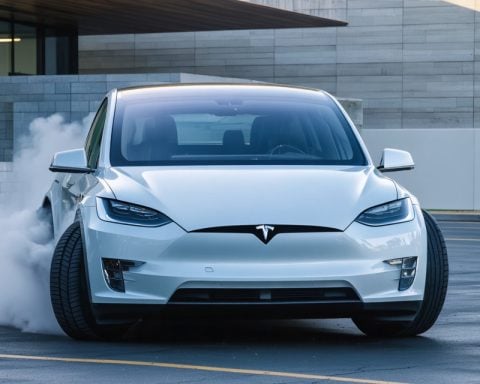Big strides towards cleaner transportation have been made in Illinois! The Illinois State Board of Education has secured an impressive almost $20 million grant aimed at transitioning several school districts to zero-emission electric buses. This vital funding, precisely $19.9 million, will facilitate the replacement of 70 diesel-powered buses with modern electric counterparts, complete with charging stations.
The grant stems from the Clean Heavy-Duty Vehicles Grant Program, a project spearheaded by the U.S. Environmental Protection Agency. This initiative specifically targets the reduction of harmful emissions, particularly in communities heavily impacted by air pollution, ultimately enhancing air quality for everyone.
Illinois Governor JB Pritzker emphasized that this funding is a step towards a sustainable future, enabling the nine selected school districts to move forward with critical clean energy goals, thus fostering healthier environments for students and surrounding communities. The plan includes allocating resources for two dedicated staff members within ISBE to assist with implementing this program and exploring additional sustainability efforts.
Suburban Chicago school districts set to benefit from this funding include Forest Park, Franklin Park, Hazel Crest, and more, with varying numbers of electric buses allocated to each. Furthermore, Grayslake, North Chicago, and Zion Elementary Districts will also receive funds to further their green initiatives.
Dr. Tony Sanders, the state Superintendent of Education, highlighted the financial and environmental advantages of these clean transportation solutions. Interested districts can also apply for additional funding through the upcoming 2024 Clean School Bus Rebate Program.
Illinois Leads the Charge to Electric Buses: Transforming School Transportation
Major Advancements in Electric School Transportation
In a significant move towards enhancing environmentally friendly transportation, Illinois has secured a $19.9 million grant aimed at replacing diesel-powered school buses with zero-emission electric alternatives. This initiative, part of the Clean Heavy-Duty Vehicles Grant Program initiated by the U.S. Environmental Protection Agency, is focused on reducing harmful emissions, especially in areas suffering from severe air pollution.
Understanding the Impacts and Benefits
The funding will primarily allow for the replacement of 70 traditional diesel buses across nine school districts in suburban Chicago, including Forest Park, Franklin Park, and Hazel Crest. Each district will determine how many electric buses they will implement, and they will also receive essential infrastructure, including charging stations.
Pros and Cons of Electric School Buses
Pros:
– Environmental Benefits: Electric buses produce zero tailpipe emissions, which significantly contributes to improved air quality.
– Cost-Efficiency: While the initial investment is high, electric buses often have lower operating and maintenance costs compared to diesel buses.
– Noise Reduction: Electric buses operate quietly, creating a more peaceful environment for students and neighborhoods.
Cons:
– Higher Upfront Costs: The initial purchase price of electric buses can be substantially more than diesel buses.
– Charging Infrastructure Needs: Significant investments are necessary to install the required charging stations.
– Range Limitations: Electric buses may have limited operational range compared to their diesel counterparts, potentially affecting long-distance travel plans.
Future Funding Opportunities
Illinois districts are encouraged to participate in the upcoming 2024 Clean School Bus Rebate Program. This additional funding opportunity could further bolster the state’s clean transportation projects, allowing even more schools to transition to electric fleets.
Sustainability Goals and Community Impact
Governor JB Pritzker underscored the program’s role in achieving the state’s sustainability goals, aligning with broader initiatives to foster healthier environments. Dr. Tony Sanders, the state Superintendent of Education, noted that this grant not only addresses immediate environmental concerns but also offers long-term financial and public health benefits for communities.
Market Trends and Innovations
The shift towards electric school buses is part of a larger nationwide trend aiming to combat climate change and reduce urban pollution. As more states recognize the environmental and health impacts of diesel emissions, similar funding initiatives are likely to emerge, encouraging a quicker transition to electric transportation solutions.
Conclusion
Illinois is setting a precedent for clean school transportation, making strides that other states may soon follow. The investment in electric buses is a crucial step towards a sustainable future, with promising benefits for air quality, public health, and community well-being.
For more information on clean transportation initiatives and updates, visit Illinois Government.


















